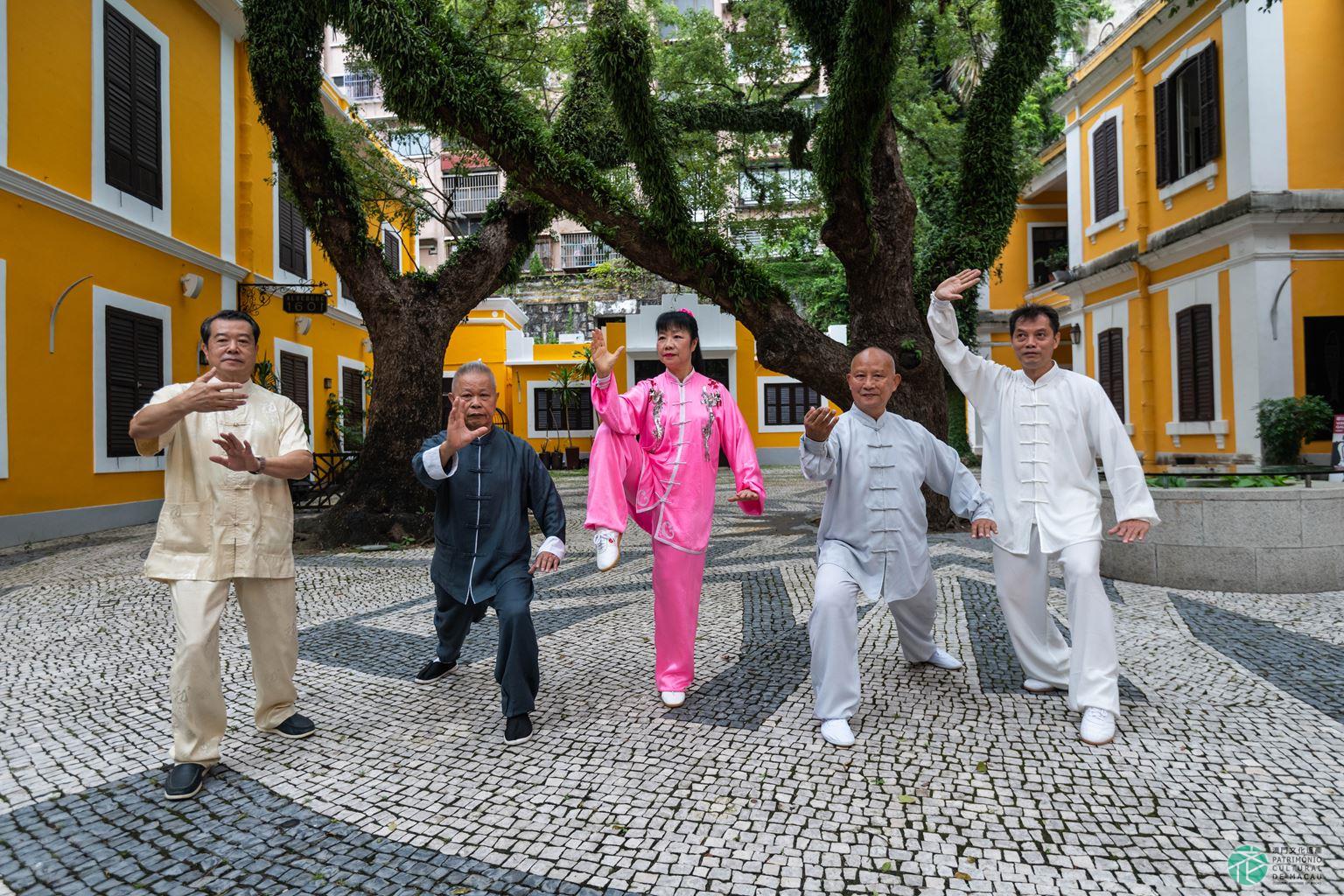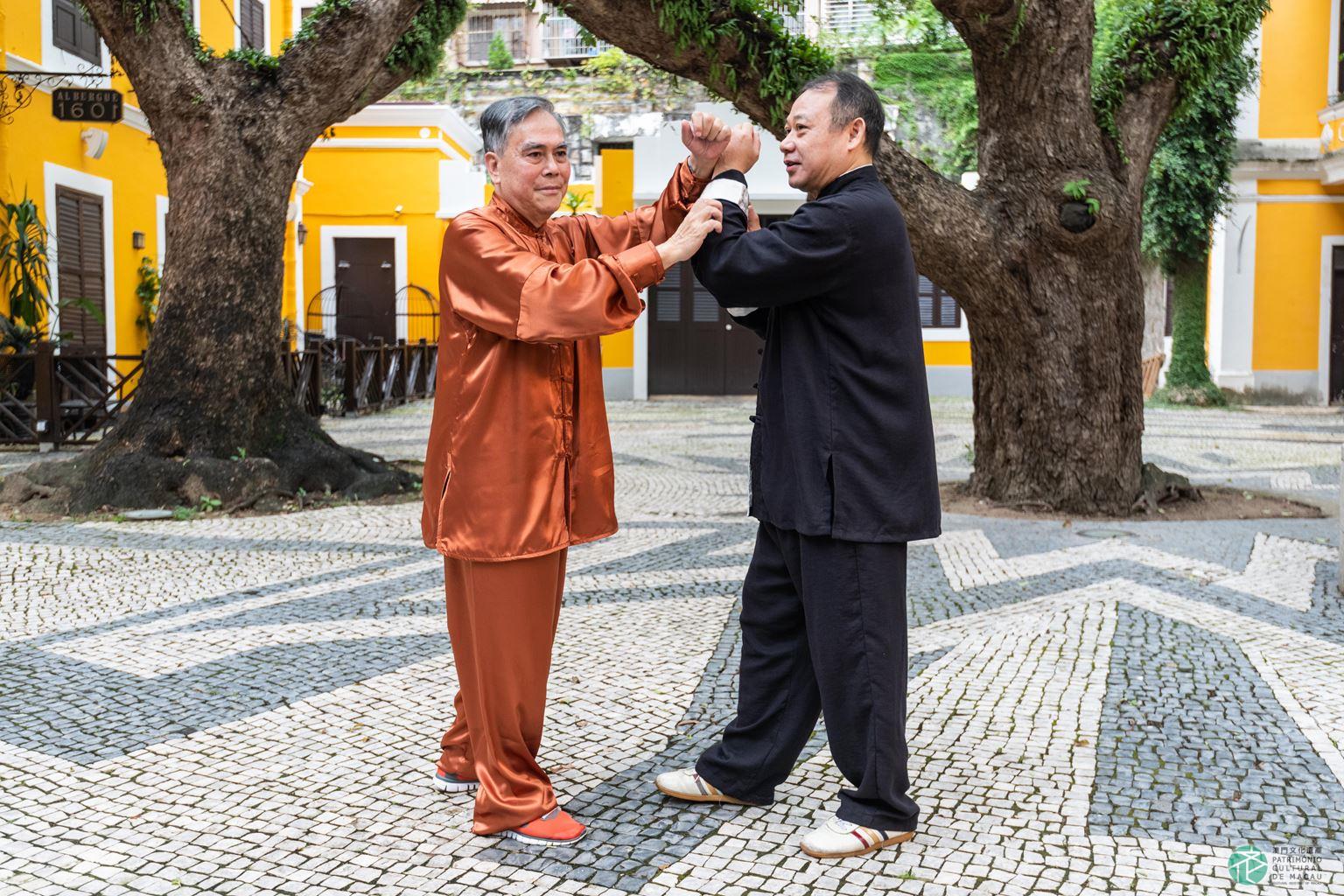Introduction:
Tai Chi is a traditional Chinese martial art with a various different school, which originated in the Ming and Qing dynasties. The concepts of Tai Chi contain Taoist, Confucian and Buddhist philosophies, also integrating elements of yin and yang, as well as ideas of dynamic and static balance, strength and deep concentration. It is a unique way of exercise that is practiced and favored because of its specific attack-and-defense training, physical fitness and the nurturing of a practitioner’s inner nature. In Macao, Tai Chi has been developed into several variant schools, with the most popular being the Chan, Yeung, Ng, Sun and Mou styles.
Conservation Status:
In Macao, Tai Chi was transmitted mainly through martial arts organizations and sports clubs. Tai Chi was introduced in Macao during the first half of the 20th century, and was originally handed down through apprenticeship. After the 1970s and 1980s, as the practice of martial arts in Mainland China as a physical exercise gained popularity, local martial arts groups began to offer Tai Chi classes in Macao, and the martial arts schools have become the main way for people to learn Tai Chi, namely, through annual martial arts tournaments and competitions in academic circles that also function as platforms to provide the opportunity for a valuable exchange about Tai Chi martial arts.
Heritage Value:
Tai Chi Martial Arts are one of Macao’s traditional activities that have a large number of practitioners, reflecting well the popularity of Chinese martial arts culture in Macao. In view of the importance that it has towards improving physical health, it is also unlike other types of martial arts that emphasize more the value of victories, instead, placing greater emphasis on philosophical thoughts that combine Confucianism, Taoism and Buddhism concepts. This practice also enables people to better understand the value of traditional Chinese culture and thinking, therefore making Tai Chi also significant for cultural studies.
.jpg)

